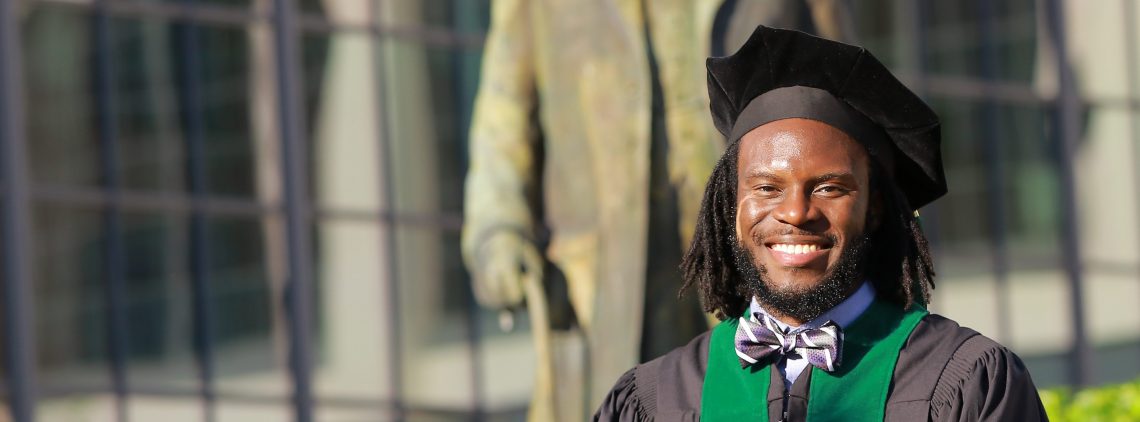What does inspiration mean to you and how would you use your platform in your future career to inspire others?
The world is comprised of approximately 7.73 billion people- each with their own unique life experiences- and inspiration lives within all of them. Because of our uniqueness, inspiration can take on many forms. On a small scale, inspiration can be the things in life that make us want to get out of bed and move through life; in the larger sense though, inspiration is the objects or ideas that drive innovation and creation. Because of this, defining it is rather challenging. Approaching it from a scientific perspective, the textbook definition of inspiration is “an animated or exalting agent or influence”. Though technically correct, this definition is crude and cold, ignoring the wonderfully warm essence of inspiration. It removes the breathtaking power of inspiration that motivates you to make a change. Inspiration is your cause, the things that charge your existence: Like how the snack, goldfish, was created as a birthday gift to a wife to commemorate her being a Pisces; or more recently, how a man created wordle, a word guessing game, because he knew his partner loved word games. Inspiration is an outlet for the uncontainable collection of love that builds up within each one of us. This love is what harbors novel ideas that contribute to the world. This convoluted and complex motivation is what I hope to encapsulate within my career. Toxicology involves the study of substances and the effects it has on the body. When paired with public/environmental health, it boils down to analyzing our environment and observing how it affects the populations within it. People are deeply connected -socially and healthwise- to the communities they develop in. By studying these communities and how it affects its related populations, I hope to inspire a love of self and of community. Empowering people with the knowledge of their community's health will foster a need and want to rehabilitate, preserve, and protect their communities. By analyzing environmental pollutants, my results will inspire others to care about what is happening around them. In studying these pollutants, I will also study, and help to remedy, any diseases or ailments that have arisen from the state of their environment. By providing communities with the knowledge of how their environment impacts them, they will foster a nurturing spirit towards their health, hopefully inspiring them to improve the public health of their communities. In the end, inspiration boils down to love. It is love and appreciation that motivates people to innovate and create. Through my career in public health with a focus on toxicology, I hope to foster a love and appreciation of environmental and public health that inspires social change within communities.
What are you currently doing to inspire those around you?
Jacksonville Youth Environmental Council (JYEC) is a grassroots organization in Northeast Florida working to study public health within its respective community. It is comprised of high school citizen scientists, led by a University of Florida public health professor and a Gullah Geechee organization representative. As a student scientist in this organization, I am working to inspire care for the development of our communities. Jacksonville has a dark history of redlining historically African American neighborhoods as less desirable and zoning them for unrestricted development. This designation allowed the construction of factories, shopping centers, and many other establishments within the hearts of black communities. With this in mind, as an organization, we decided to study whether there was a difference in heavy metal and PFAS levels between redlined and non-redlined neighborhoods. To study this, we went to local parks and waterways, as those are major points of exposure for the community, and took soil/water samples. With our results, we found that redlined areas -mainly black communities- had heavy metal levels higher than those of non-redlined areas. These results exhibited how zoning within urban development can impact communities. With public parks in black neighborhoods having higher amounts of heavy metals in its environment, this can lead to more bioaccumulation of those substances within that community when compared to non-redlined communities. Using these results, I hope to further develop and spread these findings to the surrounding community. One of the first steps will be presenting at an upcoming community health forum open to the public. I hope that these findings will inspire people to take action in regulating their local government's zoning practices and work to improve the health of their environment. By participating in JYEC, I inspire social change toward environmental justice within Northeast Florida to improve the health of my community.
What you would do with the scholarship award if you were to receive it?
I would use this scholarship money to inspire other black men. Using this money for textbooks and tuition will reduce the financial burdens of college. By facilitating my success in higher education, this scholarship will show that there are paths to success for black men in health science.


Great young man and a great program. An excellent mentor to other young men.
Kendall is a young man with a desire to provide a better future for those in need and a vision for how to accomplish his goals. It was an easy decision to vote for him!